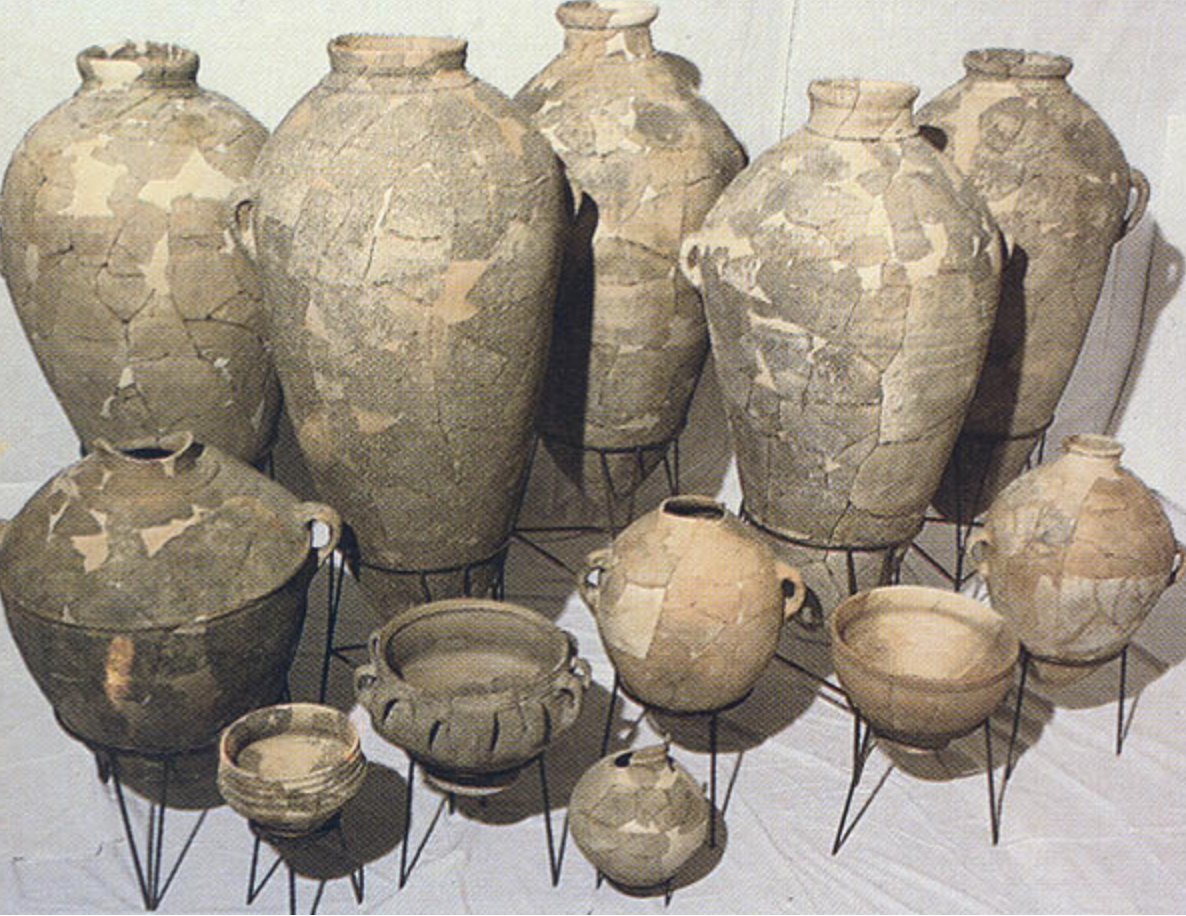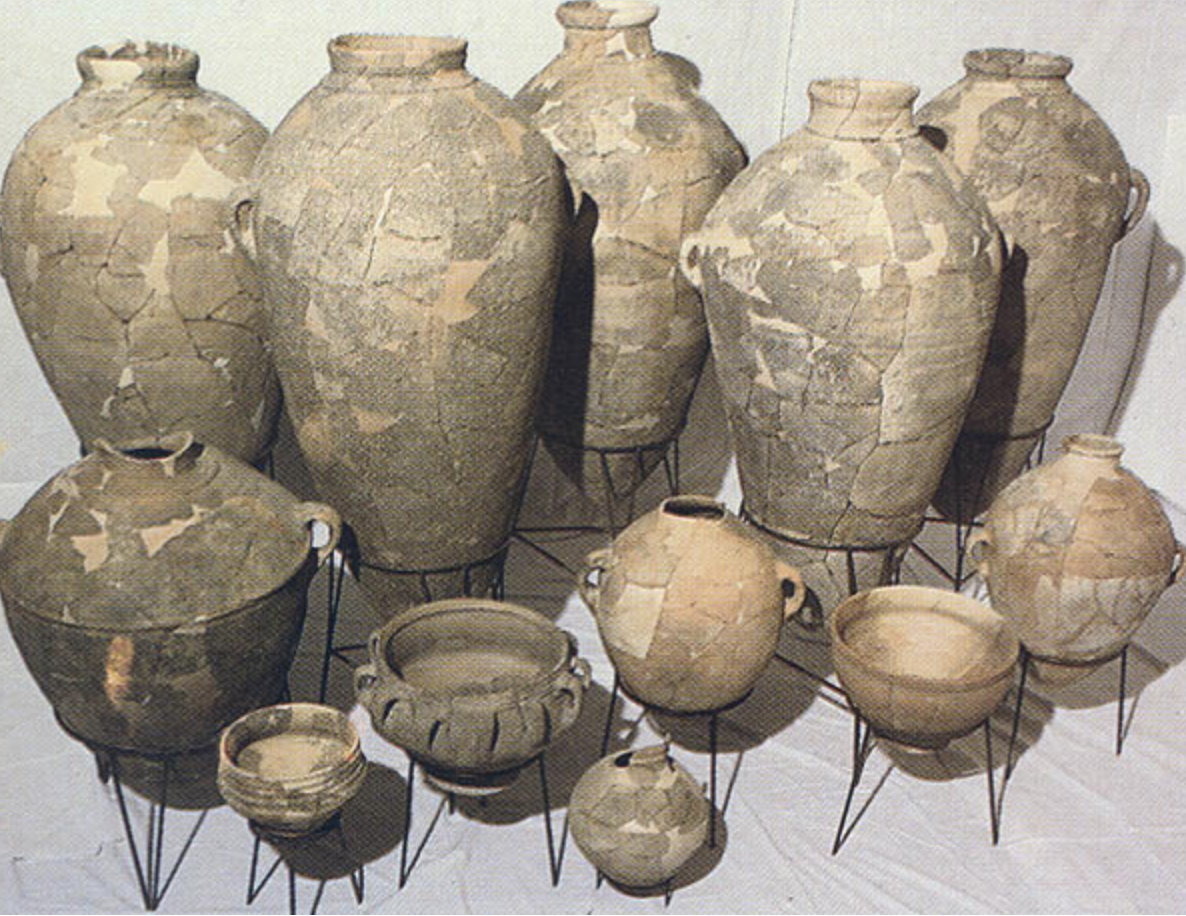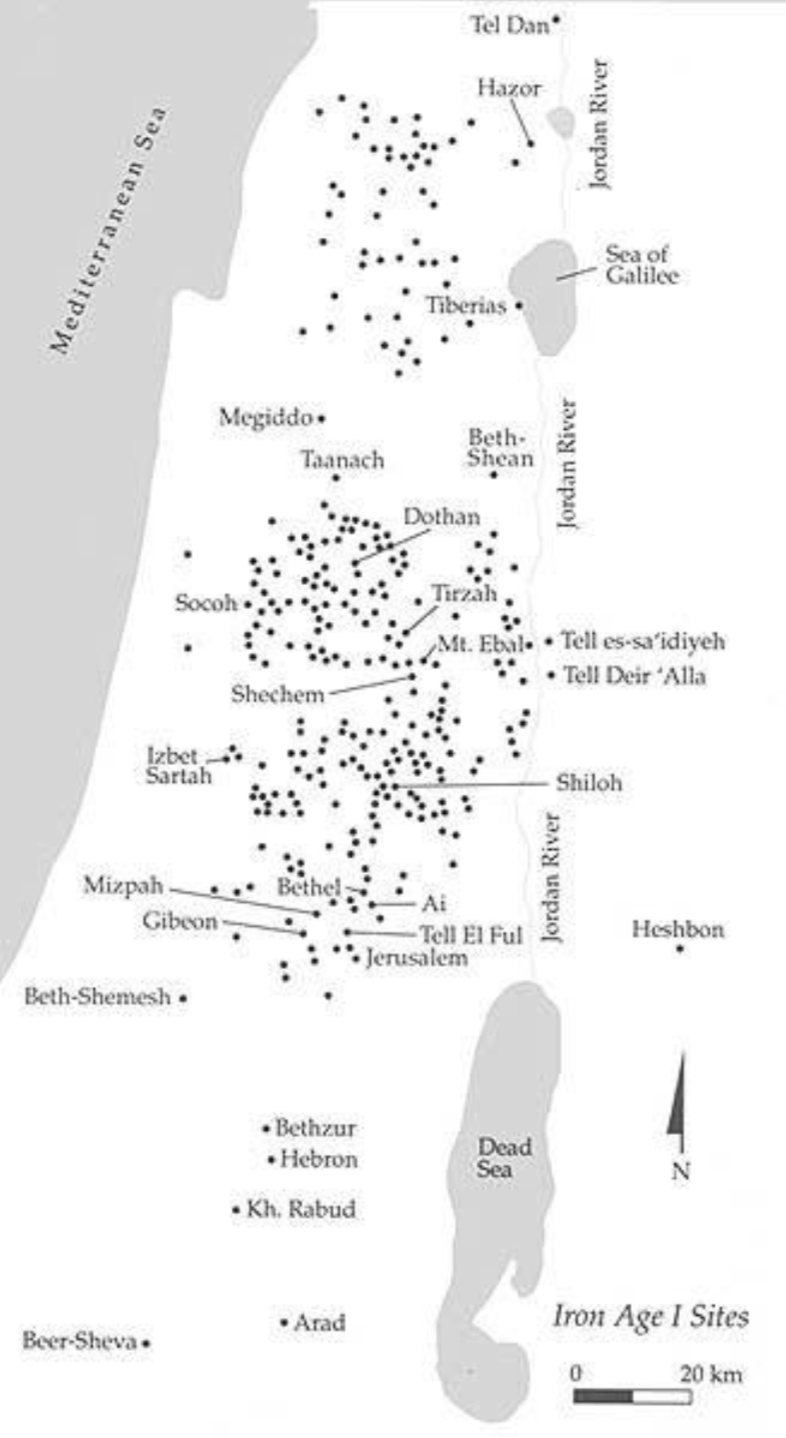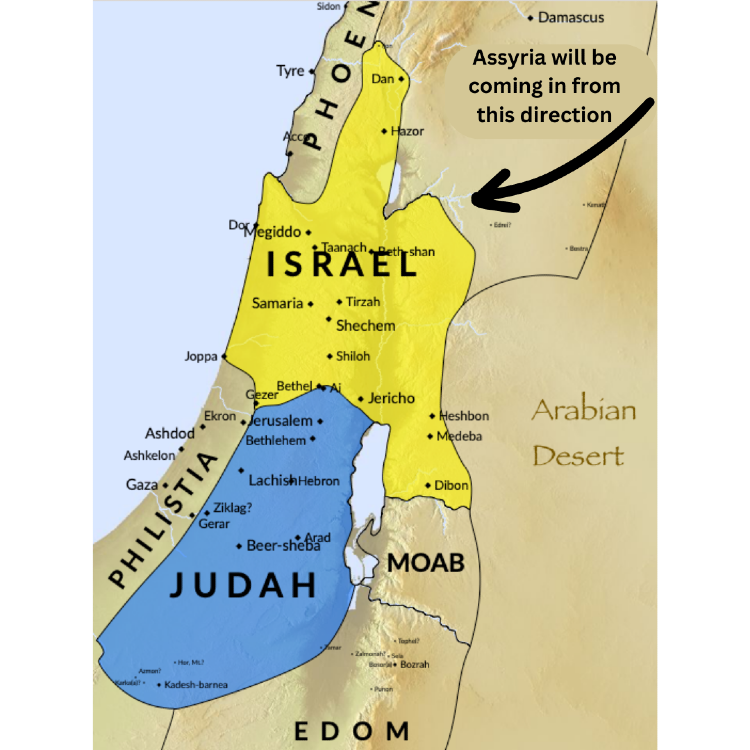debunking the conquest narrative
facing one of the hardest narrative arcs in the Bible armed with the truth of what really happened

This is Life as a Sacred Text 🌱, an expansive, loving, everybody-celebrating, nobody-diminished, justice-centered voyage into one of the world’s most ancient and holy books. We’re working our way through Numbers these days. More about the project here, and to subscribe to this 100% NAZI-FREE CONTENT, go here:
Before we get into today's essay, just a reminder that if you're not a subscriber to the Life of Sacred Text House of Study– getting our Thursday missives with text studies, interactive conversations, Q&As, unpublished work by me and more, this is a great time to get in on that and to support the labor that goes in to these essays if you're able! I've gone indie and your subscribing (above) is how I can keep doing more of this. And as always, just email lifeisasacredtext@gmail.com if you want in to the StudyHaus but paying isn't for you right now.
And if you aren't here for subscribing now– or if you're a subscriber feeling some extra love today– there's now a tip jar button if you'd like to avail yourself and support this work.
So. Friends.
Now we begin Bamidbar/Numbers in earnest.
And we start right in with the real stuff, where the rubber hits the road.
Numbers begins with a census. And... the beginnings of a military draft.
On the first day of the second month, in the second year after the exodus from the land of Egypt, God spoke to Moses in the wilderness of Sinai, in the Tent of Meeting, saying: Take a census of the whole Israelite community by the clans of its ancestral houses, listing the names, every male, head by head. You and Aaron shall record them by their groups, from the age of twenty years up, all those in Israel who are able to bear arms. (Numbers 1:1-3)
We've left Egypt, we've built the Tabernacle, we've been traveling with it for long enough to get sorted out with sacrifices and everything, and now it's time to start getting serious.
About– according to this narrative– getting ready for the upcoming war that may be necessary as the Israelites prepare to enter the Holy Land.
Yeahhh, war. Because, like, there are other people there already.
BIBLE SPOILER ALERT: Eventually, the Israelites make it to the Holy Land, wage war and kill a lot of people, as commanded. They take the land– as God had told them to.
Needless to say, we cannot elide or avoid engaging with this.
But nor will we engage with it on a purely surface level.
Because that's not what happens in this space.
OK, kids, I'll be the one to say it: The Divine-Authorized Conquest Of The Holy Land is a horrendous, toxic narrative that has not only been used to justify the Crusades, European colonialism,(1) the Occupation, the current atrocities being committed against the people of Gaza as we speak (2) and more.
Those of us for whom these texts are part of our sacred tradition(s) cannot continue dancing around this. That after "Genesis was about a family that was more dysfunctional and traumatic than what we usually say, like how most people are about their actual families," and then "we were enslaved, and that's an easier part of the story to tell, because particularly for people(s) with histories of oppression and epigenetic trauma, in the sense that there is a logic to the Exodus and how it fits into our self-conception," (3) there was part three of the narrative arc: "And then we were told by God to go take the Promised Land, by force if need be, no major stress about land rights or war ethics with regards to the current locals."
We cannot pretend that this massive narrative arc is not here. We cannot pretend that it has not done innumerable damage to many peoples and places over the course of history.
But what we can do is begin where we so often begin with the hardest stuff: By first putting down anchors in historical context.
So what's going on here?
Well, one thing I can tell you for sure that isn't going on, one thing that seems to have rather clear scholarly consensus (which, given that we're talking about aaaancient history, is really saying something) is that the
Israelite conquest?
Didn't actually happen.
If there's one thing that everything seems to be relatively in agreement about, it's that this (community, and narrative) was an inside job.
Here's what we know:
There are 300 or so early Israelite Iron Age villages in the highlands north of Jerusalem, dating to about 1200 BCE.
Some posit that these villages developed in waves from the mid- Bronze Age– over a series of demographic and political changes, but really culminating in the collapse of the Bronze Age.
It's possible that the earliest inhabitants were pastoral-nomadic locals who settled down, finally. It's possible some were from the city-state regime of the lowlands ruled by the Canaanite elite, but were marginalized or dissenting and decided to leave for political reasons. It's possible that climate change played a role– a severe dry spell ca. 1250-1100 BCE (heralding the end of the Bronze Age) may have shifted the economy from specialization to more of a self-sufficient method, and/or sent people in search of... greener pastures. Perhaps they were joined by Canaanite nomads from other parts. Perhaps some of those "other parts" brought theological ideas (from Midian? Somewhere else?) that turned out to have changed the course of history. There's a lot we don't know.
And though there are other theories as well, they also debunk the conquest myth:
Dr. Tzemah Yoreh puts it,
Another origin theory is that they came from somewhere very early on, and settled [in these villages], and that there were wars, but not the genocidal ones posited by the biblical story, and that they were not conclusive ones. [The process was one of a g]radual settling over many generations, so [in many or most senses they were] virtually indistinguishable from the Canaanites. There is evidence that this was one of the Northern Israel myths of origin. And it could definitely be a combination of these factors and others as well. I think we don't know.

But it sure seems that by 1200 BCE and beyond, these villages really started to become hopping, and the tribes of people who would eventually be known as the Israelites began to grow in earnest around then.
Many people suggest that, ultimately, the first Israelites were actually (in whole or in part) Canaanites who set up shop somewhere new and eventually developed an independent tribal/religious identity.
And it seems that the land that they inhabited was not built on the top of anyone else's ruins. They didn't conquer anybody. They just found new spots and set up camp.

So what happened? Where'd we get this conquest narrative from?

As noted archeologist Israel Finkelstein understands it:
The authors of the Bible, people from Judah at the end of the seventh century BCE, in the period of King Josiah, had a long score to settle with the northern kingdom, with its splendor and richness.
But! Then the Assyrian Empire conquers the northern kingdom in 721 BCE, causing untold devastation, and sending refugees from the north into Judah. (This is also the time of the "ten lost tribes," another story for another day.) Not long after, though, the Assyrian Empire began collapsing under the weight of the Babylonians. Poof.
Finkelstein said:
Josiah woke up one morning, looked to his left and to his right, and there was neither an Assyrian nor an Israelite to be seen. And then his officials decided to put into practice their religious and territorial ideas...Because they wanted to seize control of the territories of the kingdom of Israel and annex them, because, they said, `These territories are actually ours and if you have a minute, we'll tell you how that's so. The people of Judah started to market the story of Joshua's conquest of the land, which was also written in that period, in order to give moral justification to their territorial longings, to the conquest of the territories of Israel. The story also contains a `laundering' of foreigners, which was exactly the problem Josiah faced when he conquered Israel.... [aka] 'Our conquest is not really what it looks like, it is only the restoration of past glories.'(4)
"We were here before! This was ours previously! We're all one people, guys! And, uh, Our-Deity-worshipping foreigners showing up and conquering this land is exactly what God wants and commands us to do!" (5)
Prof. Rachel Havrelock, author of The Joshua Generation: Israeli Occupation and the Bible, has a slightly different take, suggesting that, rather, the narrative was– while still composed by the folks at State Central, Judah, intended to shore up support for a united front in the face of the Assyrian threat, and the violence directed at the out-groups was meant as an implicit threat to keep in-group members in line:
Rather than descendants of twelve sons of Jacob, I understand the twelve tribes of Israel as groups that at some point pledged allegiance to a centralized state or protostate... The groups that did not affiliate with state centralization, I propose, appear in biblical texts as interloping peoples of the land ineligible for marriage with Israelites.
The vitriolic, murderous stance against the peoples of Canaan, as I understand it, begins as a rhetorical attack on groups resistant to nationalization and crystallizes in their demonization as a corrupting presence deserving extermination. Foremost among the points that I want to make here is that Canaanites, Jebusites, and the various peoples of the land were likely not ethnically or racially different from the tribes of Israel. It seems rather that the mark of their difference arises from the unwillingness of these groups to participate in a movement toward state centralization. The so-called peoples of Canaan did not confederate with the tribes of Israel or Judah, but rather pursued alternate political forms such as the city-state. This means that although the conquest of Joshua reads like a genocidal attack on indigenous people by a colonizing group, its origins lie in a political movement seeking to reinforce the integrity of the state and dissuade its member groups from dropping out... The writers of Joshua so wish to differentiate their Israel from Canaan that they figure Canaanites as indigenous and the tribes of Israel as immigrants.
She makes the timeless observation that
"Military representations..endeavor to impose collectivity on a complex social reality"
Anyone has to just look at media in the US post-9/11 or some of what comes from Israel now to see how true this is. "We're all united," even if actually we're rather divided, politically, even if my presidency only happened because the Supreme Court stepped in to stop a valid recount of undervotes, even if tens of thousands of people had been protesting my government for nine months straight and 85% of my country wants me gone. Now we go to war, we are one!!!1!!
And in the face of threats from the mighty Assyrian Empire, she argues, the folks at Monarchy Central sought to do exactly that– through the creation of a militaristic narrative that could bring about a unified, nationalistic reality.
On the first day of the second month, in the second year after the exodus from the land of Egypt, God spoke to Moses in the wilderness of Sinai, in the Tent of Meeting, saying: Take a census of the whole Israelite community by the clans of its ancestral houses, listing the names, every male, head by head. You and Aaron shall record them by their groups, from the age of twenty years up, all those in Israel who are able to bear arms. (Numbers 1:1-3)
And, indeed, Dr. Tzemah Yoreh, who holds by the supplementary hypothesis, suggests that this whole opening section of Numbers dates– well, later than all that Assyrian business, above, roughly to the time of destruction of the First Temple by the Babylonians or the early days of the Babylonian Exile– and that, notably, the bit about the military draft was inserted later. He holds that much of the text is P, written with the agenda of the priestly/Temple class, but that the military draft bits were added by H, the redactor who put in the stuff about the Holiness Code. 100% Judean agenda stuff.
Richard Elliot Friedman (who holds by the documentary hypothesis) suggests that the whole thing I just quoted above is "P," the priestly agenda, written by the Jerusalem priesthood as an alternative version to what was told in the J and E stories. So again: Judean. And also later than the Assyrians.
All of this puts this statement from Ezekiel 16:2-3, writing from the 6th c. BCE–after Josiah, during and after the Babylonian conquest of Judah– in quite the interesting light:
Thus said the Sovereign God to Jerusalem: By origin and birth you are from the land of the Canaanites—your father was an Amorite and your mother a Hittite.
Ezekiel was likely born around the time that Josiah's reforms were kicking into high gear, so, you know, do with this what you will. (It signals to me that perhaps the Official State Narrative wasn't super persuasive before the Babylonians got to town.)
So where does all this leave us?
1) Israelites and Canaanites were likely basically the same peoples, with different customs. They were not "ethnically" different in any way, except that they eventually became a separate "ethnos" in the hiiiighly academic sense of "having a common national or cultural tradition," belonging to different peoplehoods, with different religious-tribal customs, different ideas about what made you an insider and outsider, etc. But were they "ethnically" different, in the way that we use it today? Nauxpe. Nope. Nawp. Which means...
2a) Both Israelites/Jews and Palestinians have existed on that patch of land as far back as history goes, and
2b) Those of us who have wayback Jew ancestry (see above: you can be part of the Jewish ethnos/people without being an ethnic Jew, dig) are related, genetically, to Palestinians. Surprise, surprise? (To whom, exactly??) And it also means that
3) The "God gave us this land to conquer and encouraged us to genocide the locals" narrative was originally a political fabrication and it has since been used for innumerable horrific political ends, including now.
4) Also? Honestly? I don't actually need to prove that Jews were there forever and touched the dirt in this one area in the Bronze Age to validate.. whatever. We know already that it's the historic land of the Jewish people, that even after the Romans ejected a lot of us after the Bar Kochba revolt there were always Jews there, fine, and most importantly we know that:
There are 11 million people in the region RIGHT NOW for whom this area is home and none of them have anywhere else to go.
The real question is–
What will enable a future in which everyone can thrive, and that is just for everyone?
Debunking the conquest narrative feels like an important piece of this puzzle. We must suck the air out of the sails of those who feel entitled to commit genocide (5) and/or land theft because they feel divinely empowered or even commanded.
We must face, and grapple with, all the painful parts of our holy texts and figure out how to hold them up to the light, how to shake them and shake them until the insight falls out. Until we find those hidden sparks that we can release, until we know what they can teach us and how they can be redeemed.
That, my friends, is the process of Torah. Not accepting words on a page passively, unthinkingly, but wrestling with them until we figure out how they can bless us. Demanding that they bless us, even if we don't walk away unscathed.
I don't think we've gotten all the way there with the conquest narrative, but it's a big one, and this historical context is one important piece of the puzzle. It'll continue to come back up, and we'll be there to face it down when it does– won't we?
Thanks for being part of this journey, and traveling alongside me.
Like this? Get more goodness in your inbox every week. 🌱
NOW NAZI-FREE! Nonprofit platform only!
For free every Monday—sign up at the ‘Subscribe now’ button just below.
And you can get even more as part of a community of rabble rousers going deep into the questions and issues, with even more text and provocation, every Thursday. I've GONE INDIE so subscribing CRITICALLY SUPPORTS THIS WORK.
And please know that nobody will ever be kept out due to lack of funds. Just email lifeisasacredtext@gmail.com for a hookup.
And if you’d like to underwrite one of these donated subscriptions, you can do so by signing up at one of the higher subscription points.
And if it resonated with you, please share this post.
Sending a big pile of blessings and goodness your way. 💕
Related:




Footnotes, a work in progress.
(Does this work for y'all, even if you can't click on a note to get it right away? Still working on a solution that works for this template and my preferred writing style.)
European Colonialism [1]
Gaza [2]
people(s) aligning with the Exodus narrative [3]
Finklestein [4]
Genocide [5]
Please see Robert Allen Warrior's iconic 1989 essay, "Canaanites, Cowboys and Indians: Deliverance, Conquest, and Liberation Theology Today." ↩︎
At time of this writing, Israeli attacks have killed nearly 28,000 Palestinian human beings. 28,00. The UN has said that that since the start of the war, over 100,000 people in Gaza have been killed, injured or are missing. Ha'aretz reports that 11,500 children have been slaughtered. Over ten thousand children in four months. To say nothing of the horrors that will happen if Israel invades Rafah, currently sheltering about 1.5 million people, more than half Gaza's population. Hamas was not justified in their slaughter and war crimes. But this was never, ever going to be how to make that better. Never. More on all the things that are true here. ↩︎
Various, for whom this story is part of their home narrative, not just Jews (eg: a long history of Black Americans getting free, Liberation Theology, etc) ↩︎
Finklestein also suggests that there may be an older version of the story from Northern Kingdom of Israel, in which they rule everybody (including Judah) on which Judah built their version. And Dr. Tzemah Yoreh points out that the book of Joshua itself (Joshua 13:1 and following) doesn't even posit that conquest really actually (totally) happened--it was only completed in II Samuel after David gets the monarchy. ↩︎
Never mind that these are the guys who told Bibi that they'd pull out of the coalition if he stopped the war, so the bombing of all these human beings is very much on them (has Israel "finished Hamas" yet? No. Has all this bombing been helpful for bringing hostages home? As we have recently learned, the answer is no, of course not everyone has survived this many months--and all this bombing. It should have been all for all in October.) Here we also have statements like "only transfer [of Palestinians out of Gaza, to Somewhere Else] will bring peace" and “We have an obligation to act, for our sakes and even for the sake of those purported uninvolved civilians, to [bring about] voluntary emigration — even if this war, which was imposed on us, turns this voluntary migration into a situation of ‘Coerce him until he says, ‘I want to do so’” Coerce until it's voluntary, cool cool. And for anyone still struggling with this, the Trail of Tears was genocide, no? Yeahhhhhhhhhh. ↩︎
Just gonna leave this here, again, from the Parents’ Circle Families Forum (formerly the Bereaved Parents’ Circle), because it feels too on point for today's missive not to. The organization is comprised of Israelis and Palestinians who have lost a family member in the ongoing violence.


